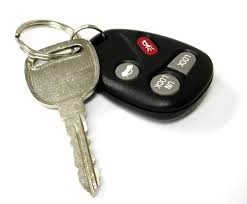To take the keys or NOT to take the keys: That is the question
Part Two:
In an earlier blog, we started talking about the decision to not drive or the decision to not allow someone to drive.
So let us dig into the signs of poor driving abilities a bit farther
Has your loved one recently received a ticket?
Have you noticed dents or dings on their car?
Are they getting lost on routes that should be familiar?
Have you witnessed poor driving skills like near-miss accidents or driving too slow for conditions?
Having a discussion with our elders is often uncomfortable when we are questioning their abilities. Additionally, many of our elders often do not recognize or acknowledge that they are having any issues, particularly with their driving skills. They see themselves as very good and safe drivers and many elderly individuals also see driving as a form of independence and freedom. So, it is important to address your concerns with particularity with your loved ones, preferably with a united front of the family. Give mom or dad the opportunity to recognize your concerns. Some of my clients after the initial discussion will reflect on the conversation and choose of their own accord not to drive. For our more stubborn clients, we suggest a more stern approach by not only pointing out their current issues, like tickets or minor accidents; but to include the realization that they could seriously injure themselves and worse yet another person. Talking about the possibility of liability is always a just and understandable.
And still, I have those clients who will just not concede that they are not fit to drive. At this time, it is your duty to prevent them from driving even if it means that they will be upset with you. Again, having the whole family on the same page and portraying a united front is important.
So, what can you do?
Disable the vehicle.
Removing the vehicle from their homes (out of sight out of mind).
Elicit the help of their primary care physician.
If they were recently in an accident, elicit the help of the reporting police officer.
Elicit the help of the whole family.
Employ attorney to speak with mom or dad (sometimes they are more likely to listen to a 3rd party rather than their own child)
At the point in time you take keys from your parent, be prepared for them to be angry, hostile and even call the police on you. I often will counsel individuals to contact the local police ahead of time so that they can head off any additional legal issues. Contacting mom and dad’s physician for reinforcement is also a good plan. Unfortunately, there is no ONE good answer as each individual reacts differently. If your loved one still insists on driving and you have grave concerns about their abilities, the final step is to actually file a form with the Secretary of State requesting that the individual have their driver’s license revoked.
You may find this form at the following link: Secretary of State form to have an individual’s driver’s license revoked
Keep in mind that anyone may file this form and it is often filed by primary physicians, police officers, and family members. Their license is not automatically revoked, they will have an opportunity to take a class and an on-road driving assessment. Additionally, because the State recognizes that driving is an essential part of our everyday lives, even if they are not successful, they will have the right to an appeal hearing. This process should be avoided if at all possible and should be your last resort. However, this process is necessary at times to protect those who do not know they need protection and to protect the public. We often see in our practice that children are put in the difficult position of choosing between what their parent wants and what their parent needs. Deciding when it is time to hang up the keys can be one of the most difficult decisions. We wish anyone in this situation the best of luck and if you have any additional questions or think that you might want some help in this endeavor please feel free to reach out to our office.


